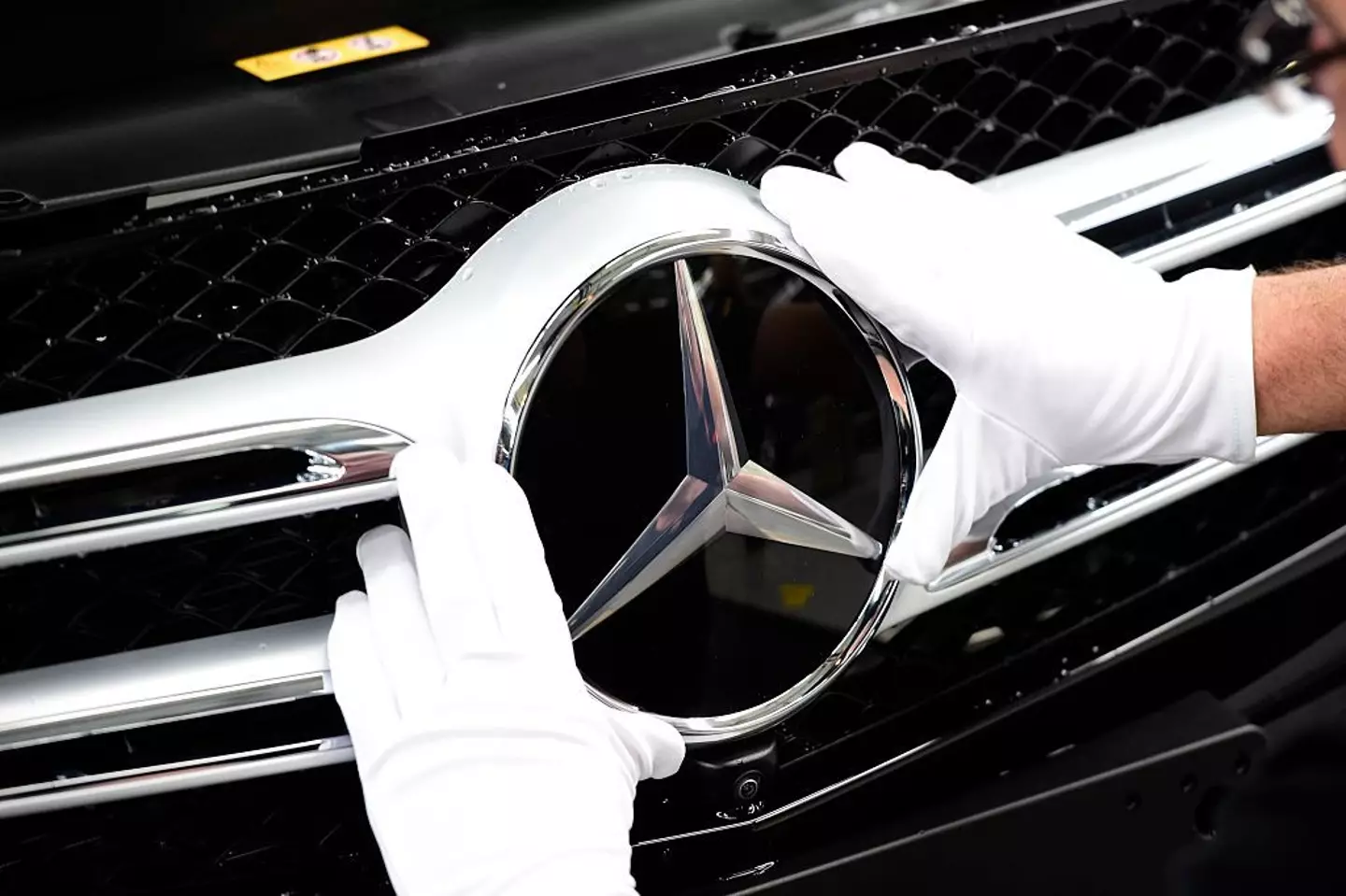When you think of the luxury car brand Mercedes-Benz, you likely picture sleek design, innovative engineering, and the three-pointed star logo. But did you know that you’ve likely been mispronouncing its name all along? As one of the most iconic automotive brands in the world, Mercedes has a fascinating history—and it turns out, a pronunciation that might surprise you.
The Origin of the Mercedes Name: A Tribute to Family

How do you pronounce Mercedes? (Sean Gallup/Getty Images)
Mercedes-Benz, originally established in 1926, is the result of a collaboration between automotive pioneers Karl Benz, Gottlieb Daimler, Wilhelm Maybach, and Emil Jellinek. It was Jellinek who gave the brand its name, inspired by his daughter, Mercedes. The brand name “Mercedes” soon became synonymous with style, luxury, and exceptional German engineering, yet the original pronunciation has often been lost in translation.
How Do Most People Pronounce “Mercedes”?
Over the years, Mercedes has grown into a household name, with people across the globe familiar with its prestigious vehicles. However, despite the brand’s widespread recognition, a recent survey conducted by Saga car insurance reveals that many people mispronounce it. The survey, which asked Brits to pronounce, spell, and draw the logos of 30 popular car manufacturers, found that only 20% of participants pronounced “Mercedes” authentically.
Most participants pronounced it as “Mer-say-deez.” While not entirely incorrect, this pronunciation isn’t authentic to the brand’s German roots.
The Correct German Pronunciation: Mertz-say-dez
In German, the brand name “Mercedes” is pronounced “Mertz-say-dez,” with a distinct emphasis on the “Mertz” sound at the beginning. The more commonly used “Mer-say-deez” is an Anglicized adaptation, which, while close, misses some nuances of the German pronunciation.
This revelation caught the attention of car enthusiasts online. Many took to social media platforms like Reddit to seek clarification, where they received mixed responses. One user pointed out that even F1 commentators can be heard using variations, some saying “Mer-say-deez,” while others attempt “Merseedays.” However, the correct pronunciation, as native German speakers affirm, is indeed “Mertz-say-dez.”
Why the Mispronunciation Persists
So why do so many people get it wrong? Part of the reason lies in regional accents and the natural tendency to adapt foreign words to the sounds that are familiar in a given language. English-speaking countries have long used “Mer-say-deez,” and this has become so entrenched that even advertisements, the media, and some Mercedes representatives use this pronunciation for simplicity.
Another factor is the global popularity of the brand. With Mercedes-Benz cars found in nearly every country, regional adaptations in pronunciation have become a natural part of its international identity. So, while “Mertz-say-dez” is technically correct, “Mer-say-deez” is widely accepted and understood.

Almost all the Brits participating in the study pronounced the car brand wrongly (Alexander Koerner/Getty Images)
Public Reaction: Mercedes CEO Adds to the Confusion
The pronunciation debate was recently reignited when Mercedes-Benz CEO Ola Källenius discussed the origins of the brand name. In a video posted on social media platform X (formerly Twitter), Källenius recounted the story of the brand being named after Jellinek’s daughter, Mercedes. However, viewers quickly noticed that even Källenius didn’t use the traditional German pronunciation in his speech, adding fuel to the ongoing debate.
His non-authentic pronunciation led many to question whether the German pronunciation even matters anymore, or if the more globally recognized “Mer-say-deez” has become the acceptable standard. Despite the CEO’s choice of pronunciation, die-hard fans and language purists insist that “Mertz-say-dez” is the way to go.
Recognition and Popularity: The Mercedes Legacy
Despite the pronunciation struggles, Mercedes-Benz remains one of the most recognizable brands worldwide. Saga’s survey also looked at how familiar Brits were with car brand logos and spelling, and Mercedes emerged as a clear favorite. In fact, 88% of survey respondents could accurately draw the brand’s famous three-pointed star logo from memory, making it one of the most recognizable emblems in the automotive industry.
When it came to spelling, 83% of respondents successfully spelled “Mercedes-Benz” correctly. This is a testament to the brand’s long-standing legacy and influence. The three-pointed star logo, symbolizing Mercedes-Benz’s ambition to dominate land, sea, and air transportation, is almost as iconic as the name itself.
Is the “Correct” Pronunciation Essential?
Does it really matter how you pronounce “Mercedes”? For some language enthusiasts and car aficionados, honoring the original pronunciation is a sign of respect for the brand’s heritage. It’s a nod to the company’s German roots and the legacy of the individuals who built it into the luxury brand it is today.
Mercedes-Benz CEO Ola Källenius shares how the name 'Mercedes' came about. pic.twitter.com/h7xh29lYv3
— Historic Vids (@historyinmemes) June 12, 2024
On the other hand, language evolves, and the accepted Anglicized version, “Mer-say-deez,” has become the norm in many English-speaking countries. For many, the pronunciation doesn’t detract from the admiration they feel for Mercedes vehicles. To them, the car’s performance, style, and engineering quality matter far more than the intricacies of how the brand’s name is pronounced.
Learning from Mercedes: Embracing Globalization While Honoring Roots
The Mercedes pronunciation debate highlights a broader trend in global branding. As companies expand worldwide, they face the challenge of balancing brand integrity with the need to adapt to local languages and cultures. Some brands choose to preserve their original pronunciation, while others embrace local adaptations, allowing their names to evolve as their products reach new markets.
For Mercedes-Benz, this linguistic adaptation may even contribute to its success. The flexibility in pronunciation makes the brand feel approachable and familiar to customers worldwide, while still retaining its luxurious and high-end appeal.
Conclusion: A Name That Transcends Pronunciation
Whether you say “Mertz-say-dez” or “Mer-say-deez,” Mercedes-Benz remains a brand associated with luxury, quality, and elegance. The pronunciation may vary, but the admiration for the brand is universal. For those who want to stick to tradition, the correct German pronunciation, “Mertz-say-dez,” honors the brand’s roots. For others, the more common “Mer-say-deez” works just as well.
In the end, the name Mercedes represents more than just a car—it represents a legacy of innovation, quality, and a standard that has stood the test of time. So, the next time you see a Mercedes-Benz on the road, you can appreciate it knowing there’s more to its name than meets the ear.